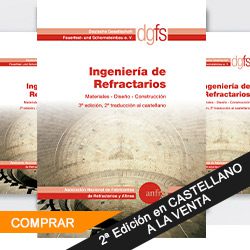Brown fused alumina prices in China reached a 1.5-year high this week. The ongoing anti-pollution checks continue to cap production in Henan while scrutiny on export documents is ridding the market of lower offers.
Chinese brown fused alumina spot prices hit a 1.5-year high over the past two weeks as widespread environmental inspections continue to push prices upwards.
Environmental inspectors have moved into Henan province – the main fused alumina producing region in China – since mid-July, and many facilities were compelled to close while the inspections took place.
Randomised anti-pollution checks have been conducted at plants in various parts of the province, which reduced total fused alumina output in the region, at least three local producers told IM.
China is one of the largest fused alumina producers globally and the output cut will impact exports to international refractories and abrasive end markets.
Due to the ongoing production outage, brown fused alumina (BFA) prices have rocketed over the past fortnight, continuing the uptrend that was first identified on 13 July.
«It’s like a roller-coaster: [prices are] rising every two days,» said one Henan-based producer on the price volatility.
Refractory-grade brown fused alumina (BFA) (95% Al2O3 min, 0-6mm) spot prices jumped by an average of $65/tonne to $700-750/tonne FOB China, up from $620-700/tonne a fortnight ago, according to IM’s assessments on 24 August.
Offers for BFA produced from fixed furnace start at the lower end of the range, close to $700, while premium material from tipping or Higgins furnace is priced at the higher-end.
Abrasive-grade material (95% Al2O3 min, Fepa F8-220 Grit) also rose to $780-825/tonne FOB China, up from $730-780/tonne.
Supply of certain grit sizes will continue to be limited due reduced capacity and drawn down inventory, two Henan-based producers said.
«Every little we produce gets taken straightaway. Inventory is zero,» said the first Henan producer.
The producer and another Europe-based distributor have expressed concern about the ability to fulfill supply contracts in the coming months amid the great supply uncertainty.
In contrast, due to sufficient raw material alumina supply, white fused alumina prices remained stable as production was not as badly impacted.
Refractory-grade white fused alumina (99.0% Al2O3 min, in 25kg bags) prices have remained unchanged since 6 April at €700-750/tonne ($820-878/tonne) CIF Europe.
Two Henan-based producers lamented that the higher prices were a direct effect of rising raw material cost, and did not contribute to higher profit margins.
Raw material bottleneck, VAT scrutiny
To further compound supply issue, the prices of graphite electrode, a key component in the kiln for the production of fused alumina, have spiked in recent months.
According to one Chinese producers on 24 August, graphite electrode prices have increased to above Chinese Renminbi (Rmb) 60,000/tonne ($9,003/tonne), up from Rmb 50,000 ($7,502/tonne) in end-July. Note: IM does not track or publish prices of graphite electrode.
Fused alumina producers estimate around 2-23kg of graphite electrode is used to produce every tonne of fused alumina, and the price spike has further supported upticks in this market.
The supply of locally mined high-grade bauxite ore remained restricted, which has further impacted fused alumina production.
Meanwhile, intense scrutiny on export documents by China customs has discouraged any offers that do not include the 17% value-added tax (VAT), a second Henan producer said.
«Now nobody dare go through Hong Kong; it’s too risky,» said the producer.
Buyers could avoid paying the 17% VAT when they route payment through off-shore accounts held in Hong Kong or Shenzhen, hence some sellers often conduct business through this method.
Tax evasion on minerals exports is widely acknowledged as being common in China. Such practices have existed for many years and, although illegal, they were often overlooked by authorities, before the latest crackdown on tax dodgers.



